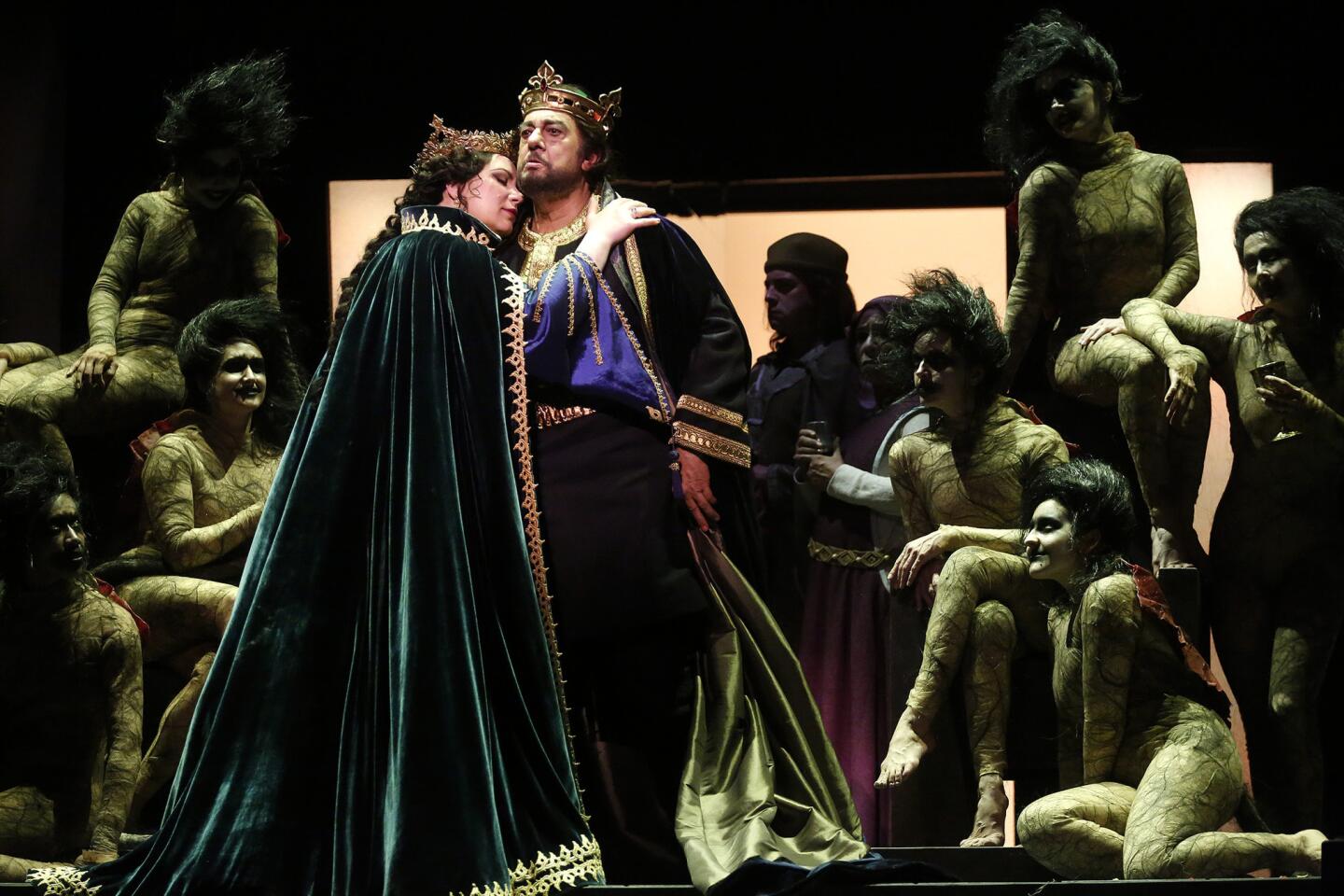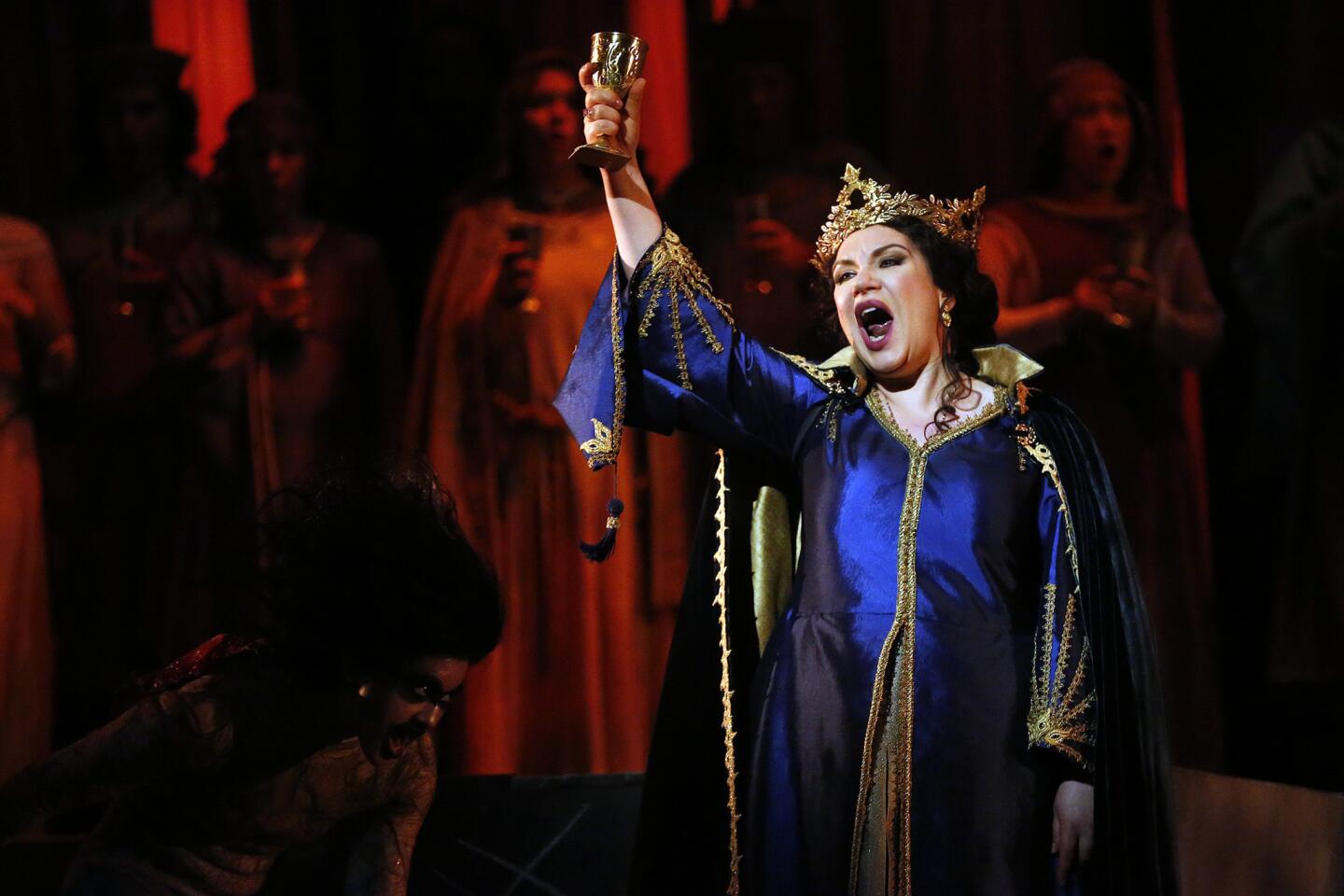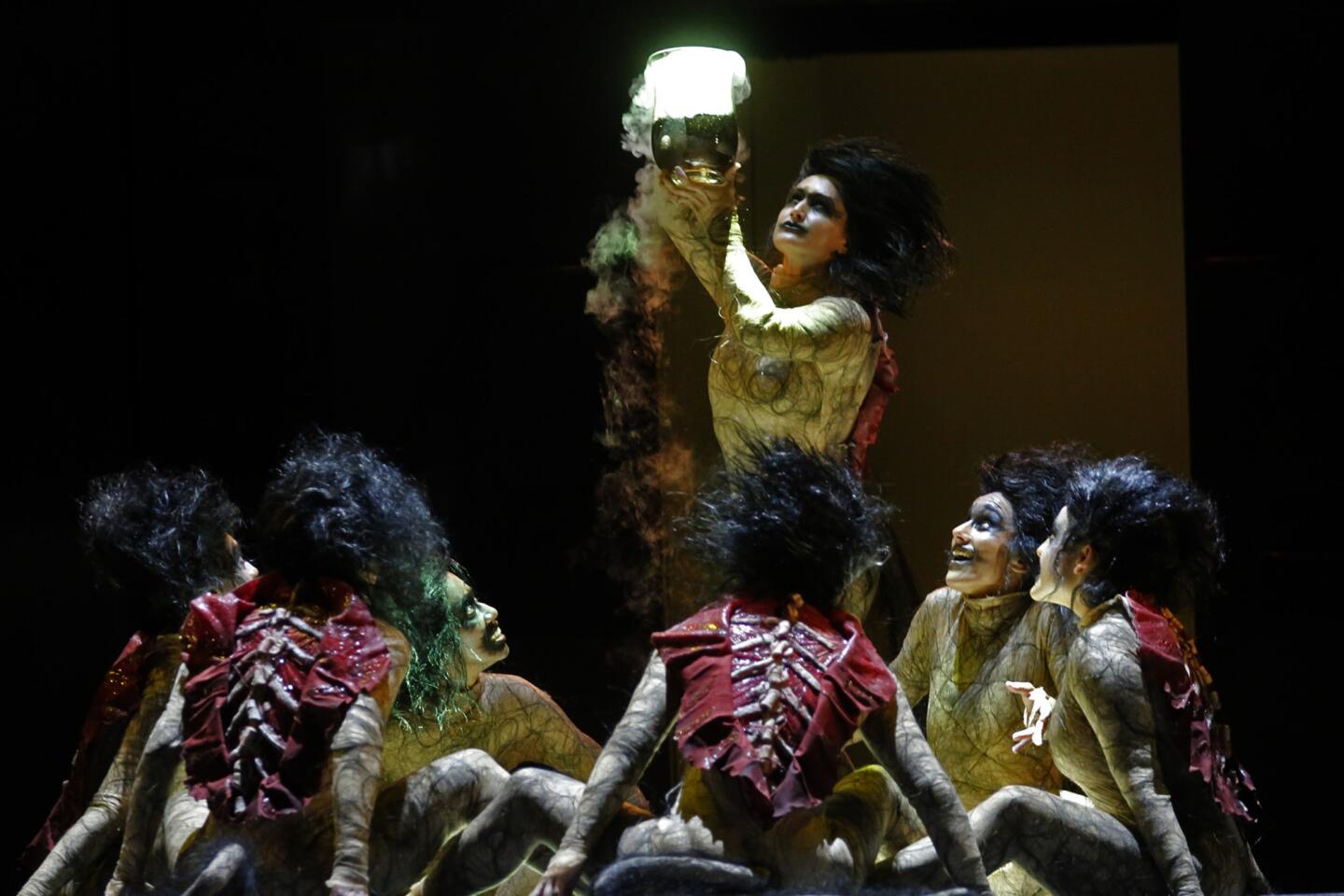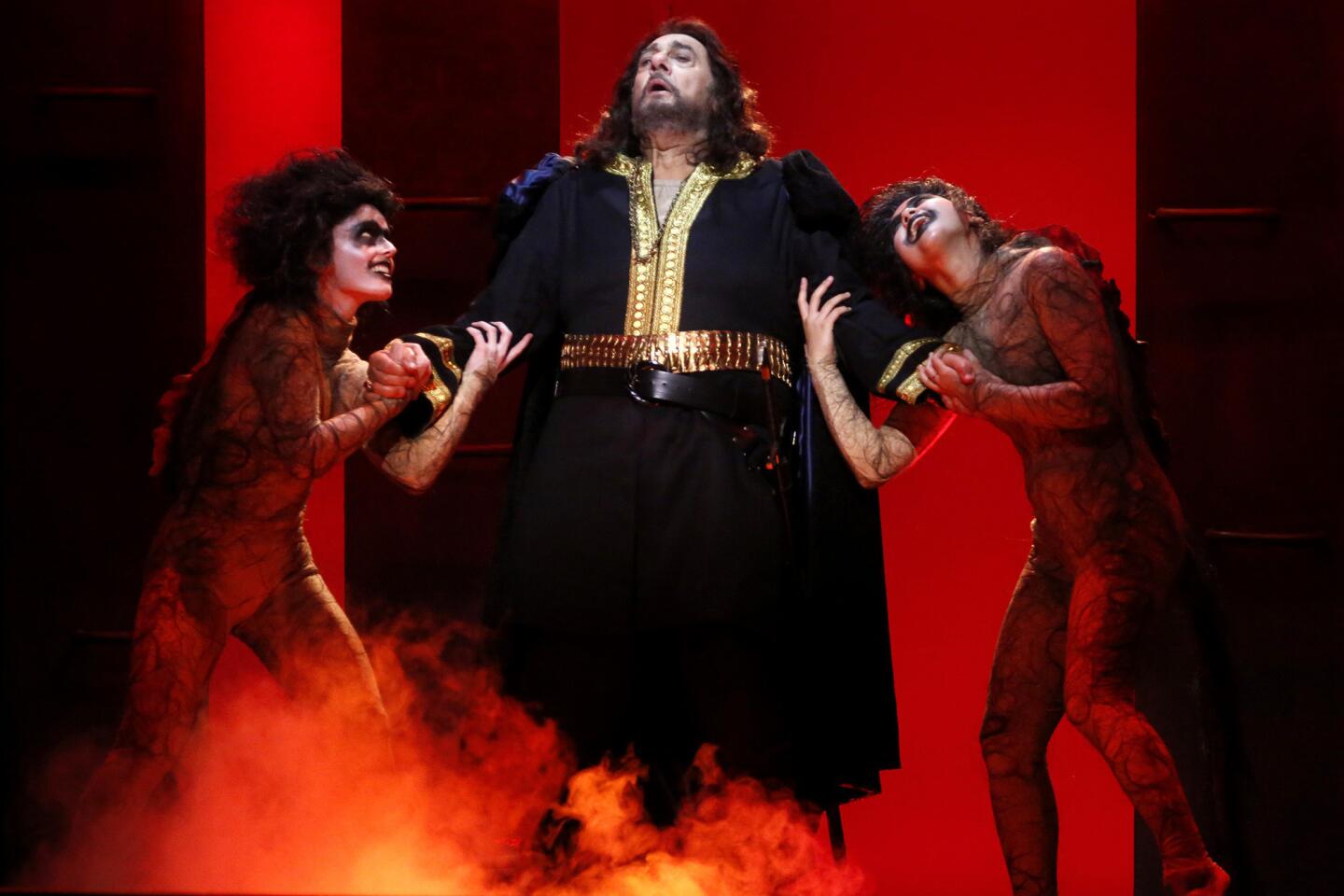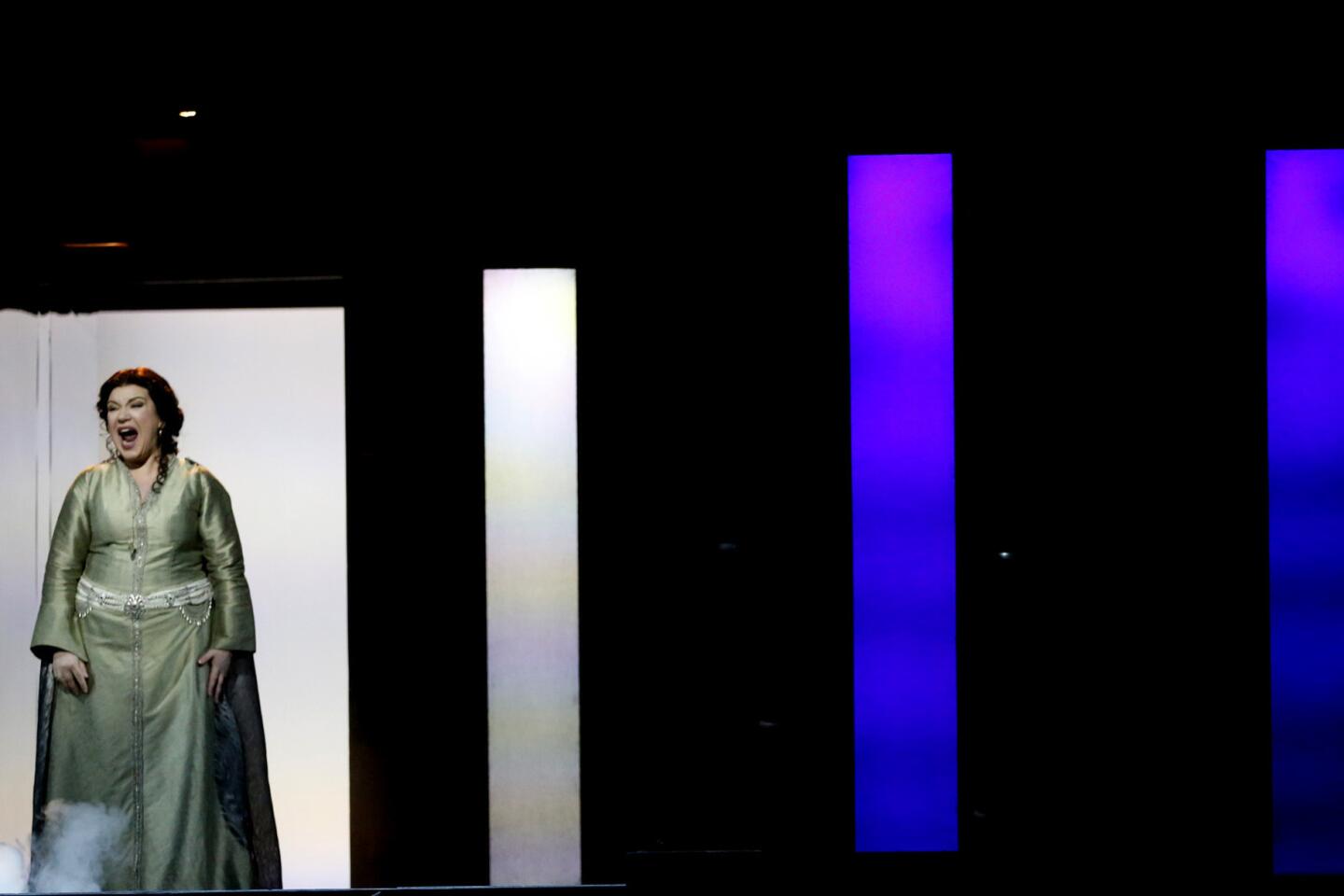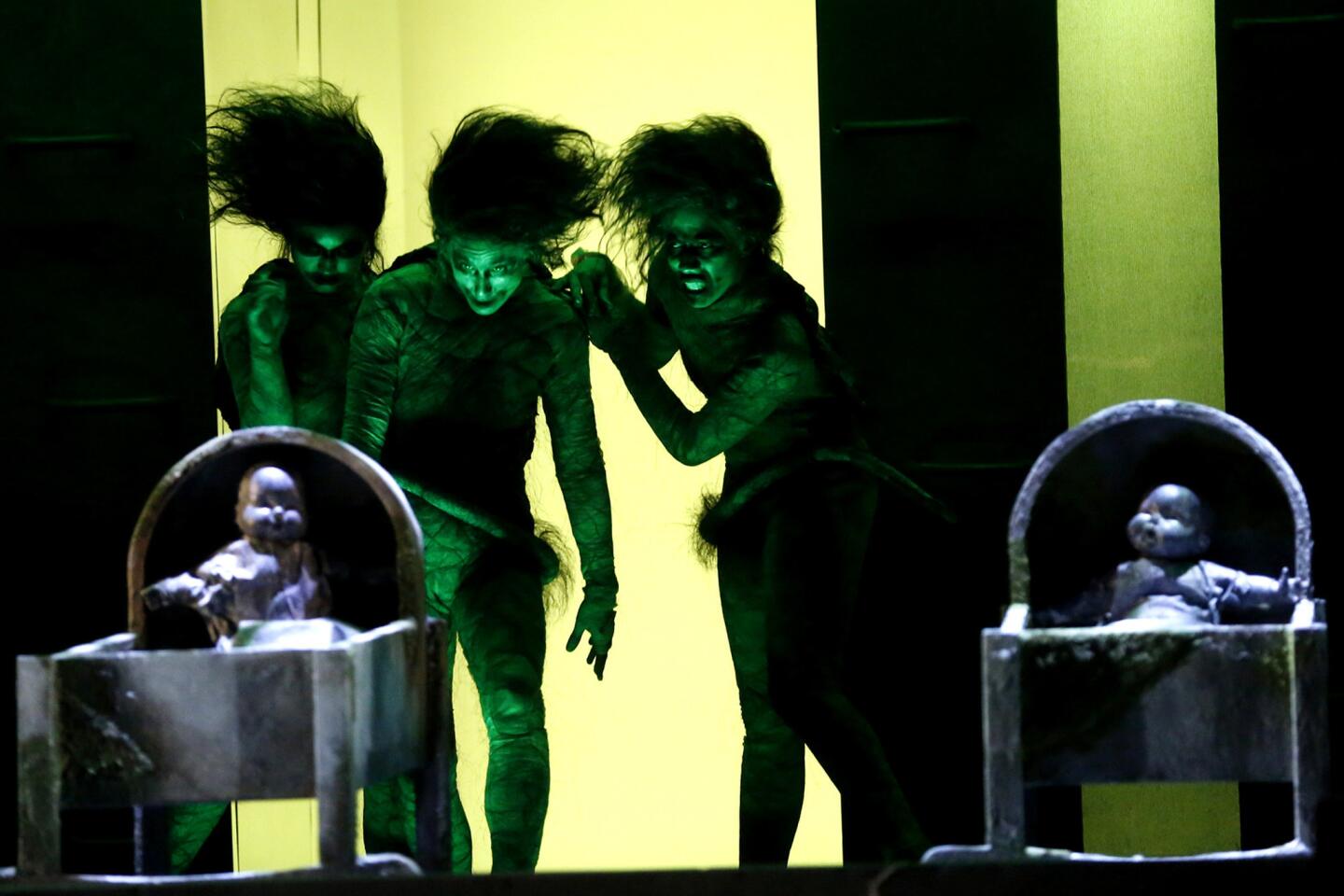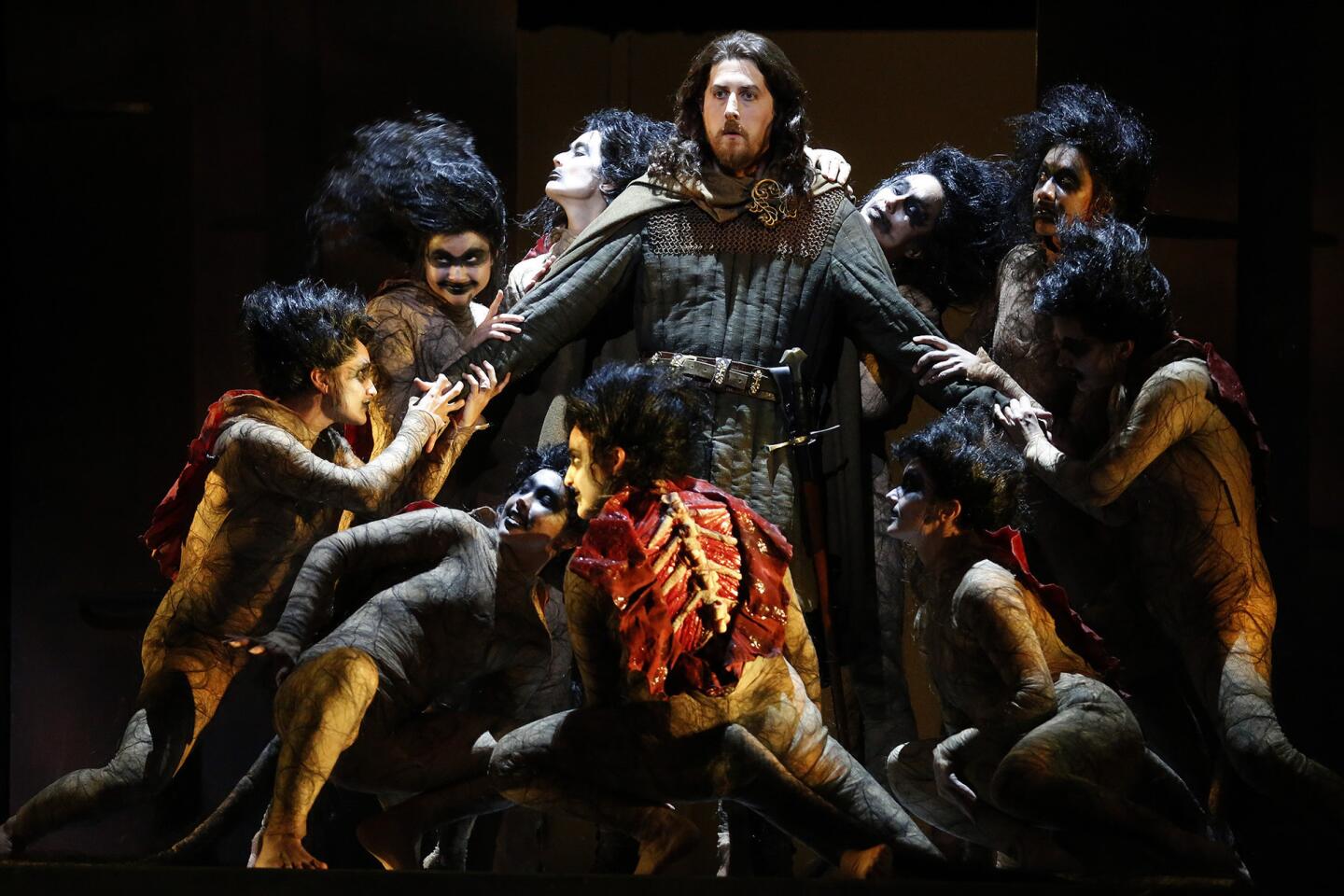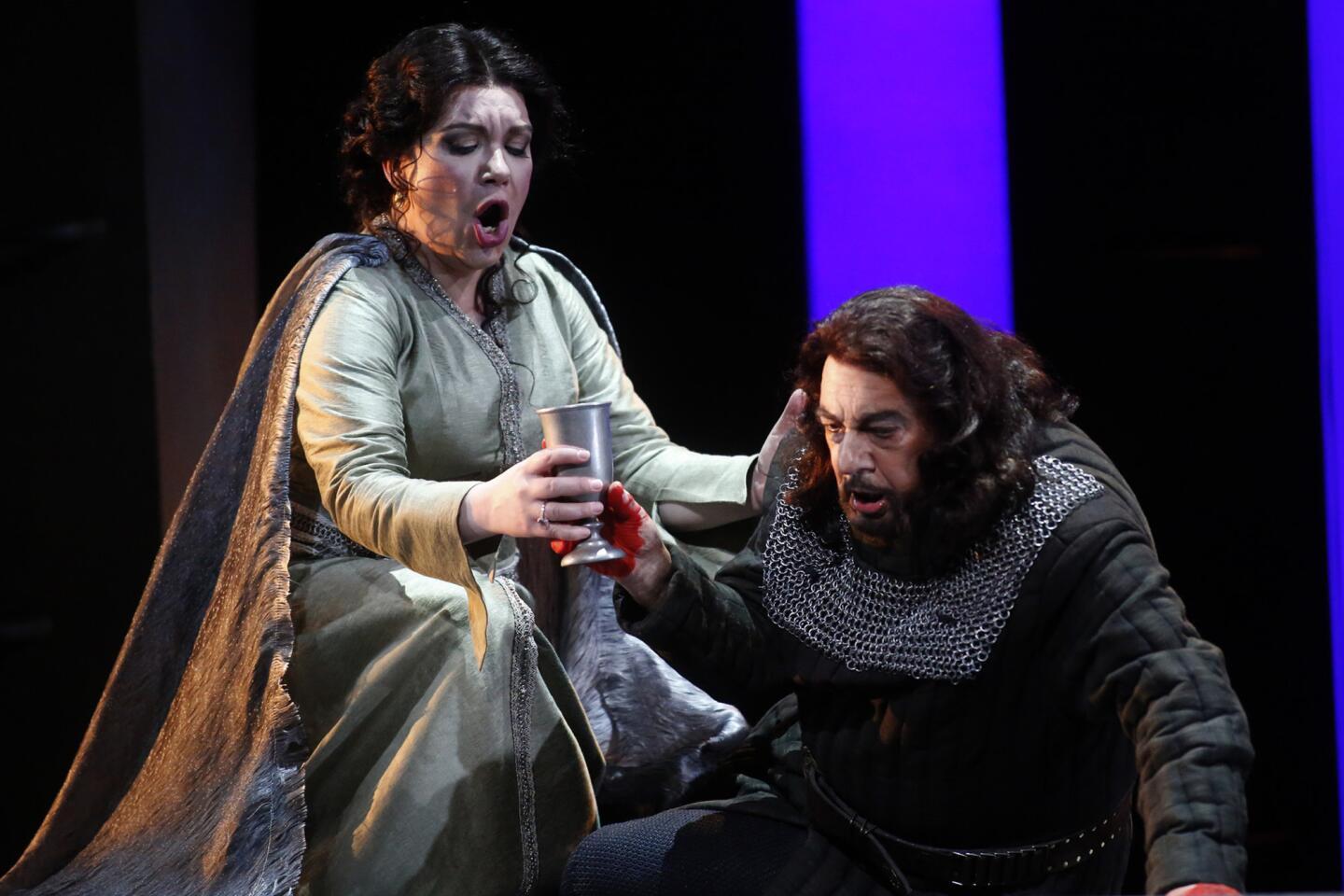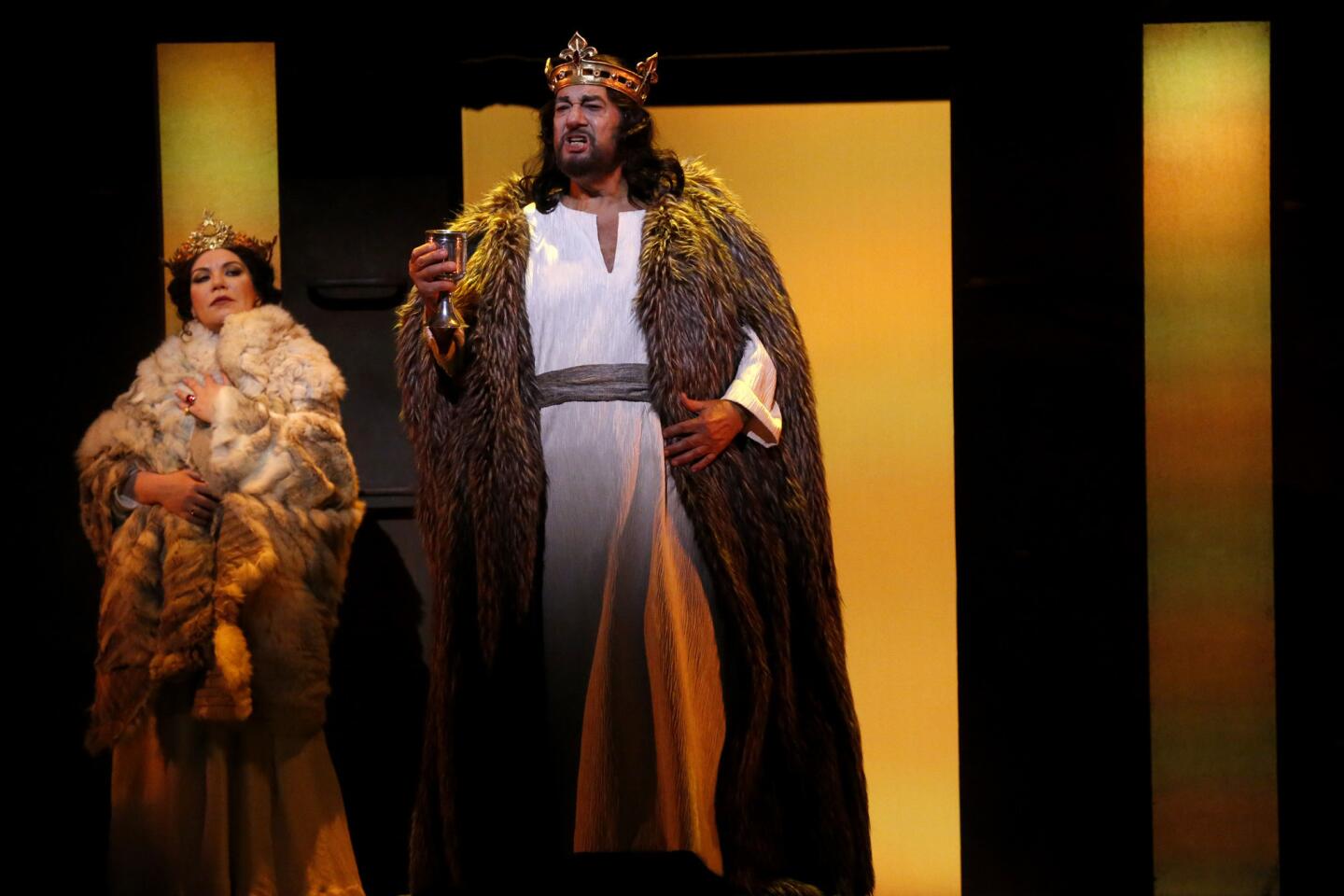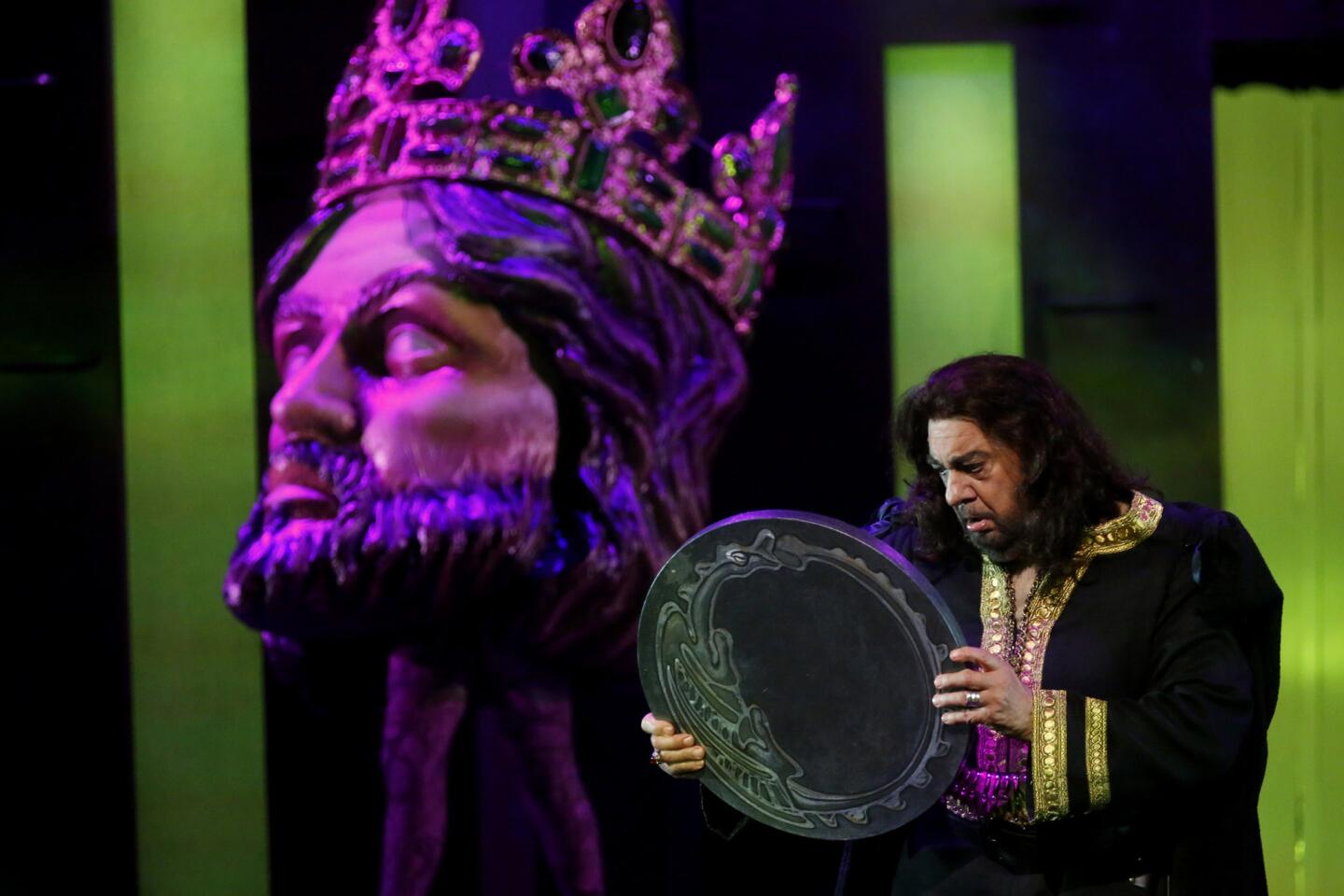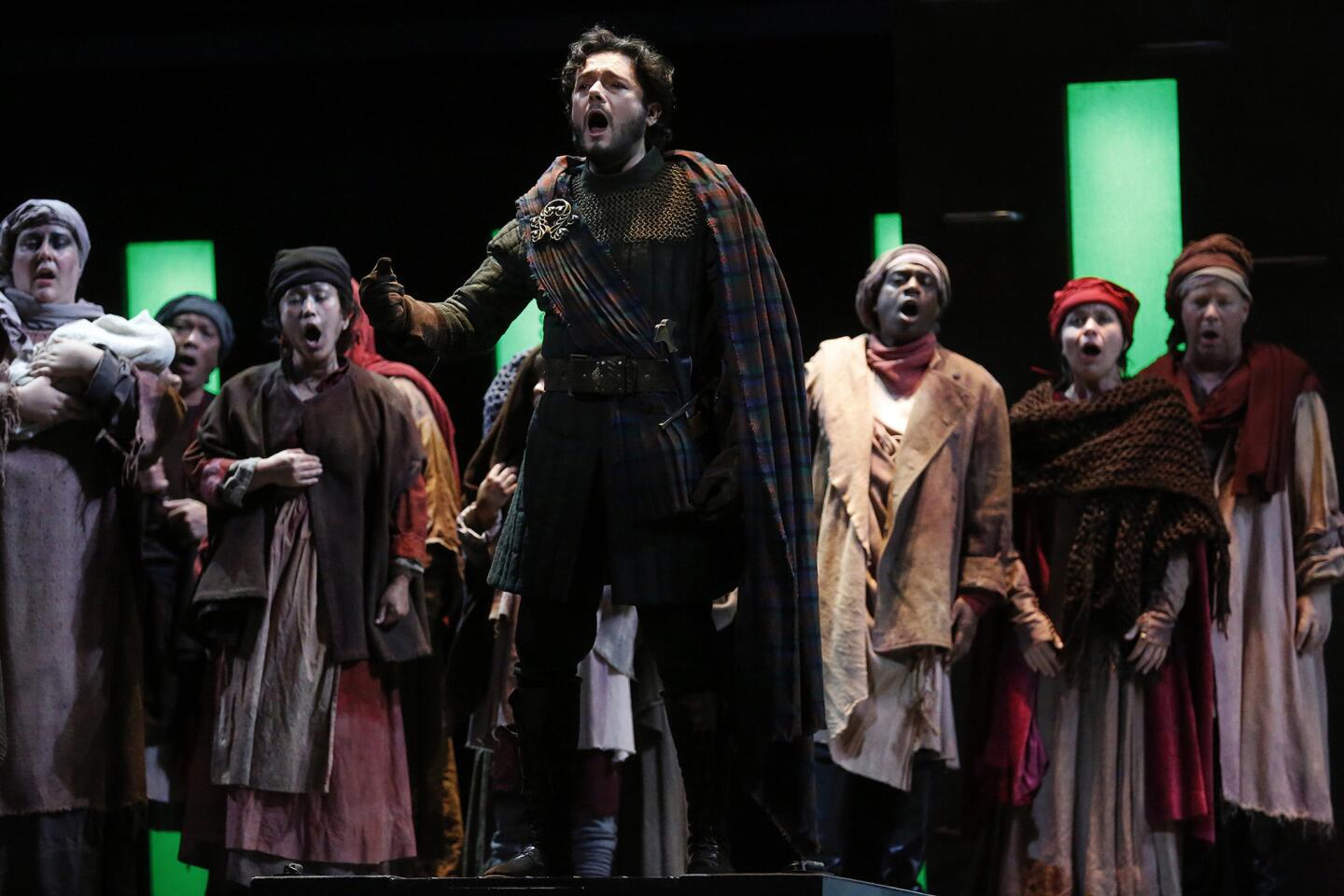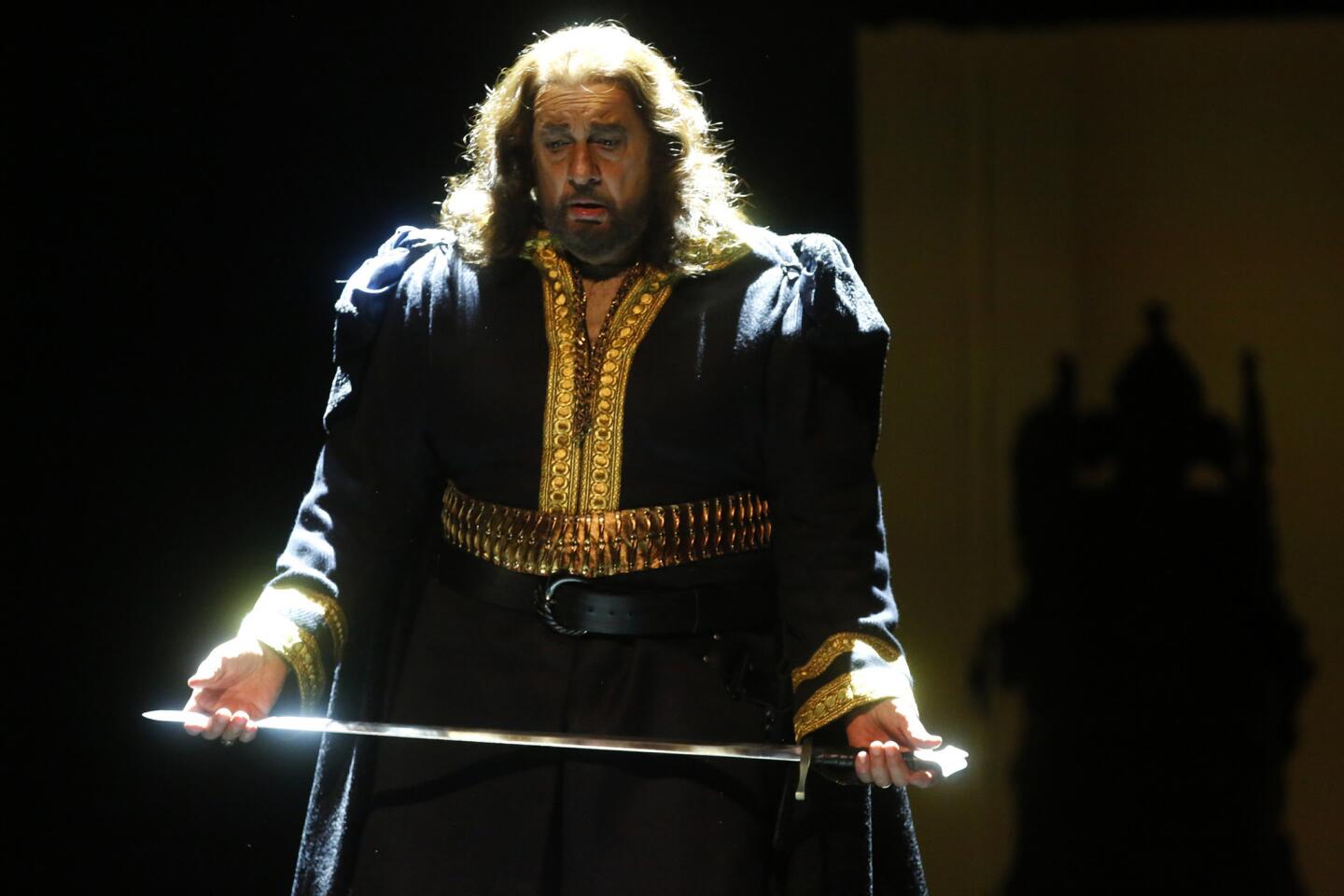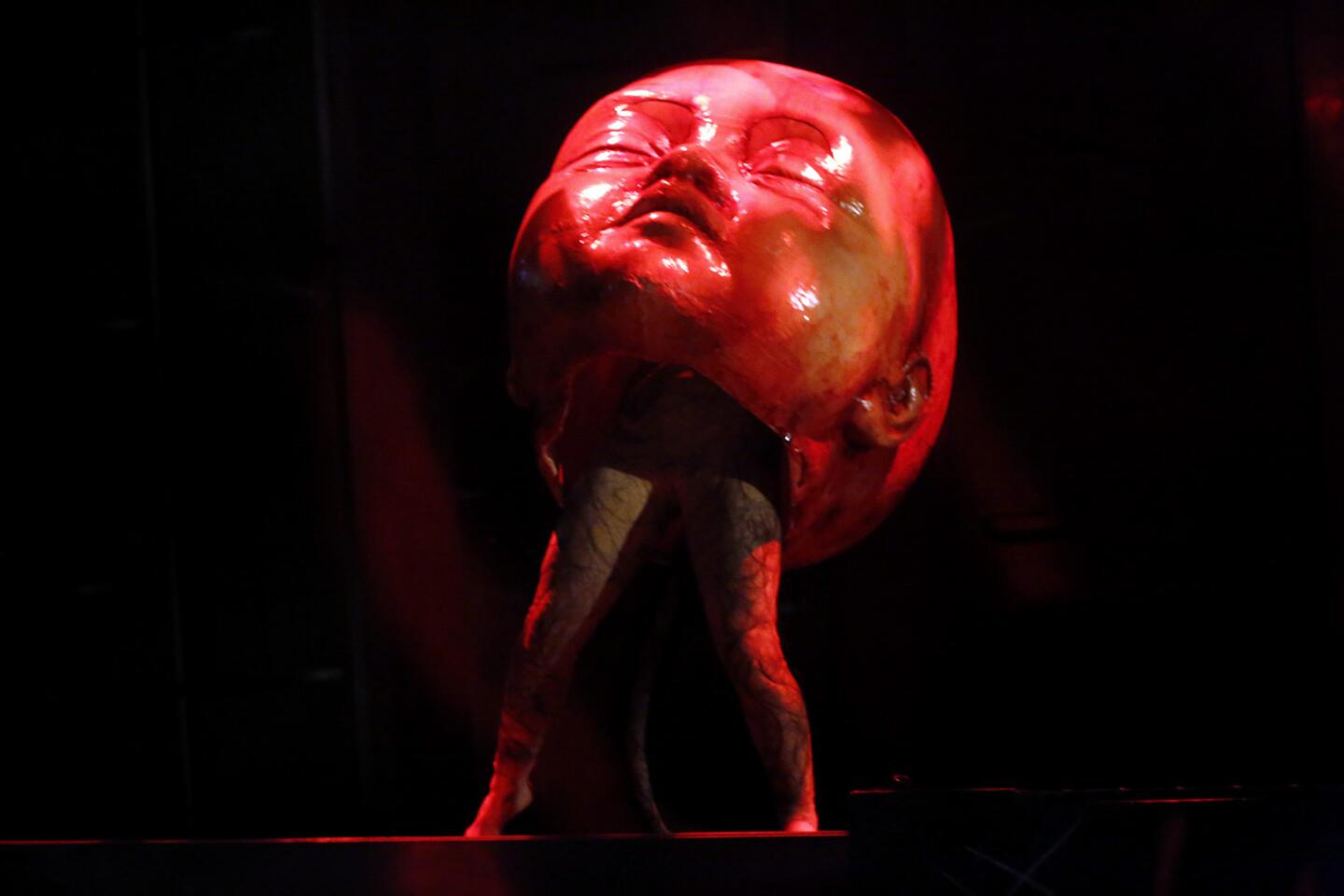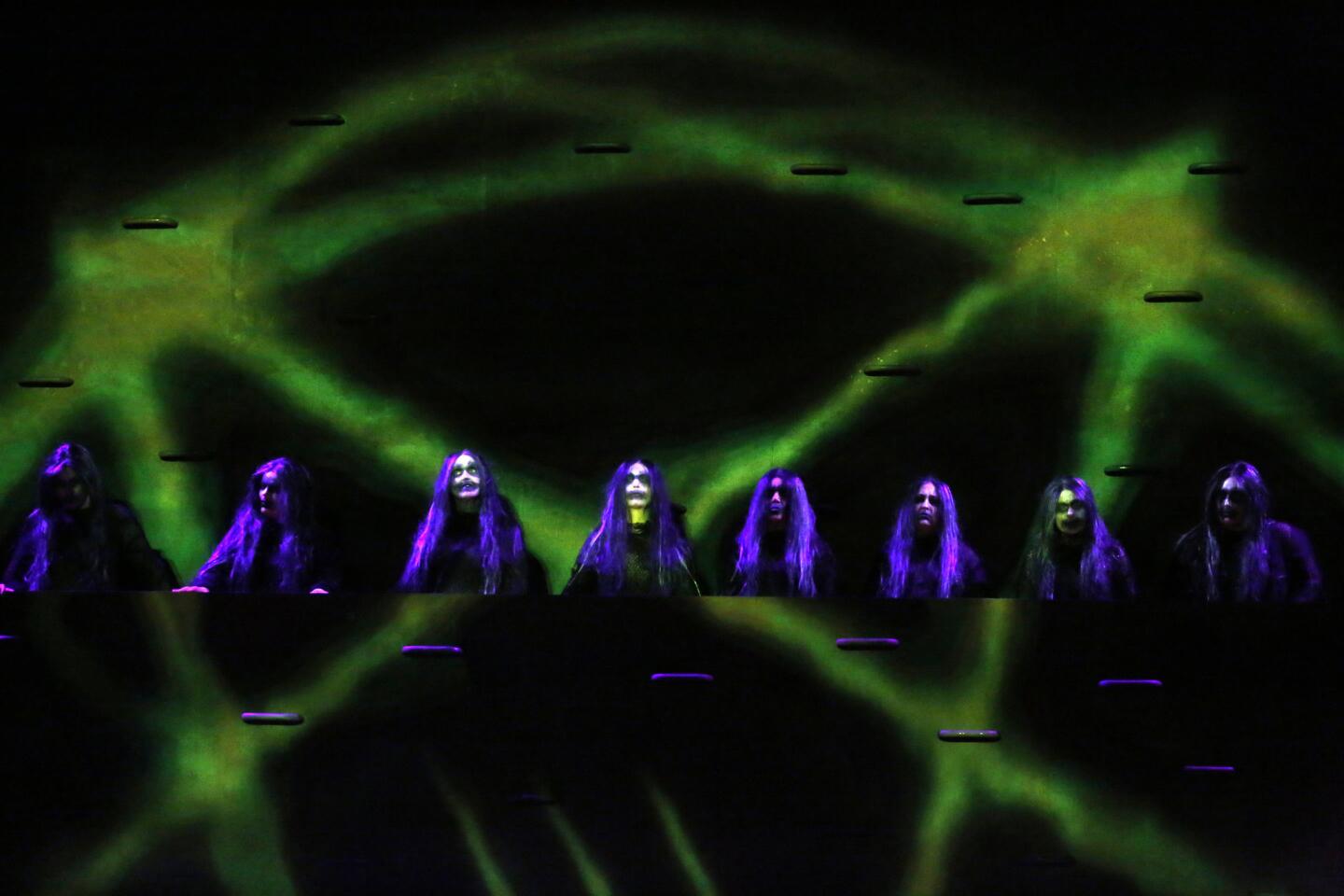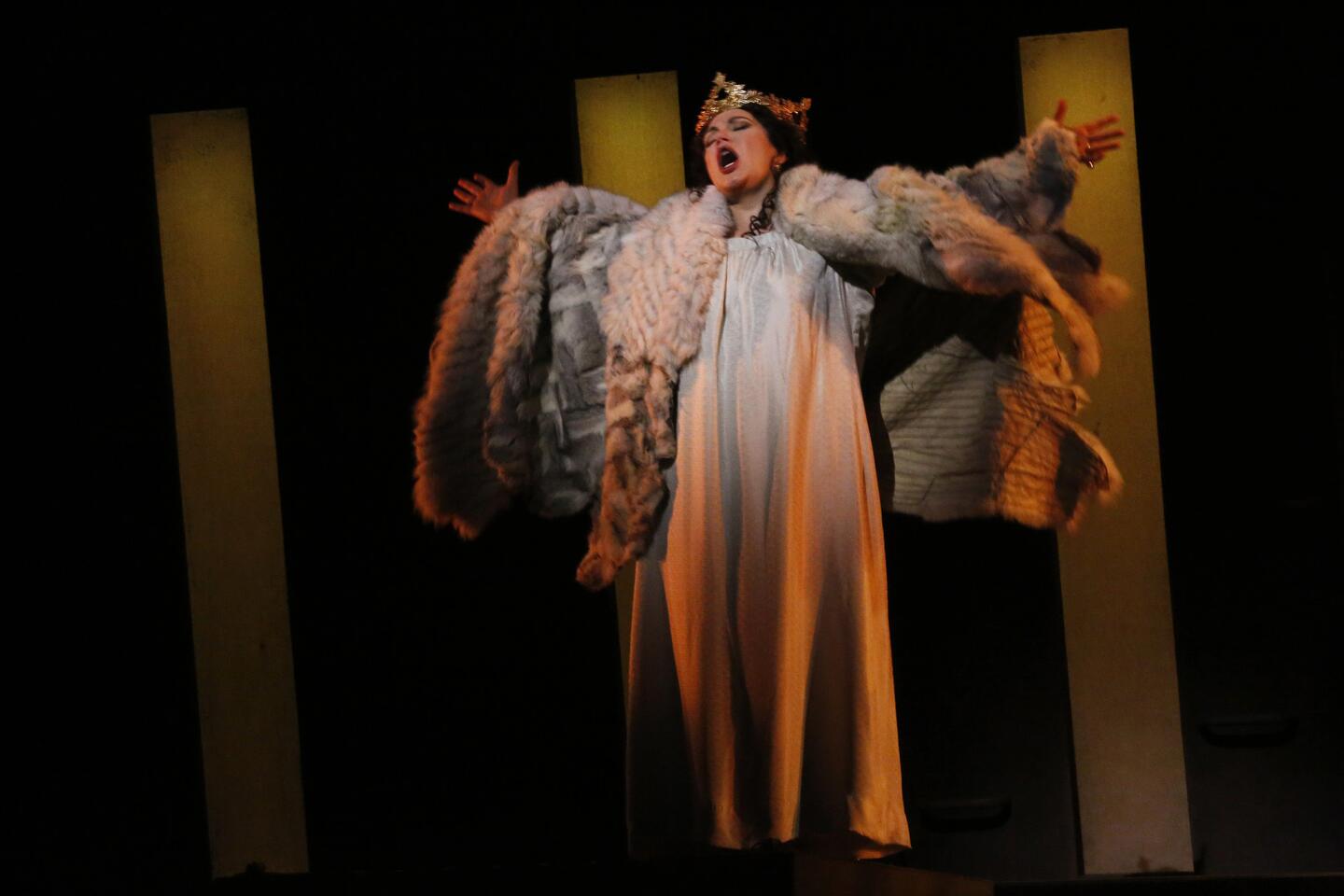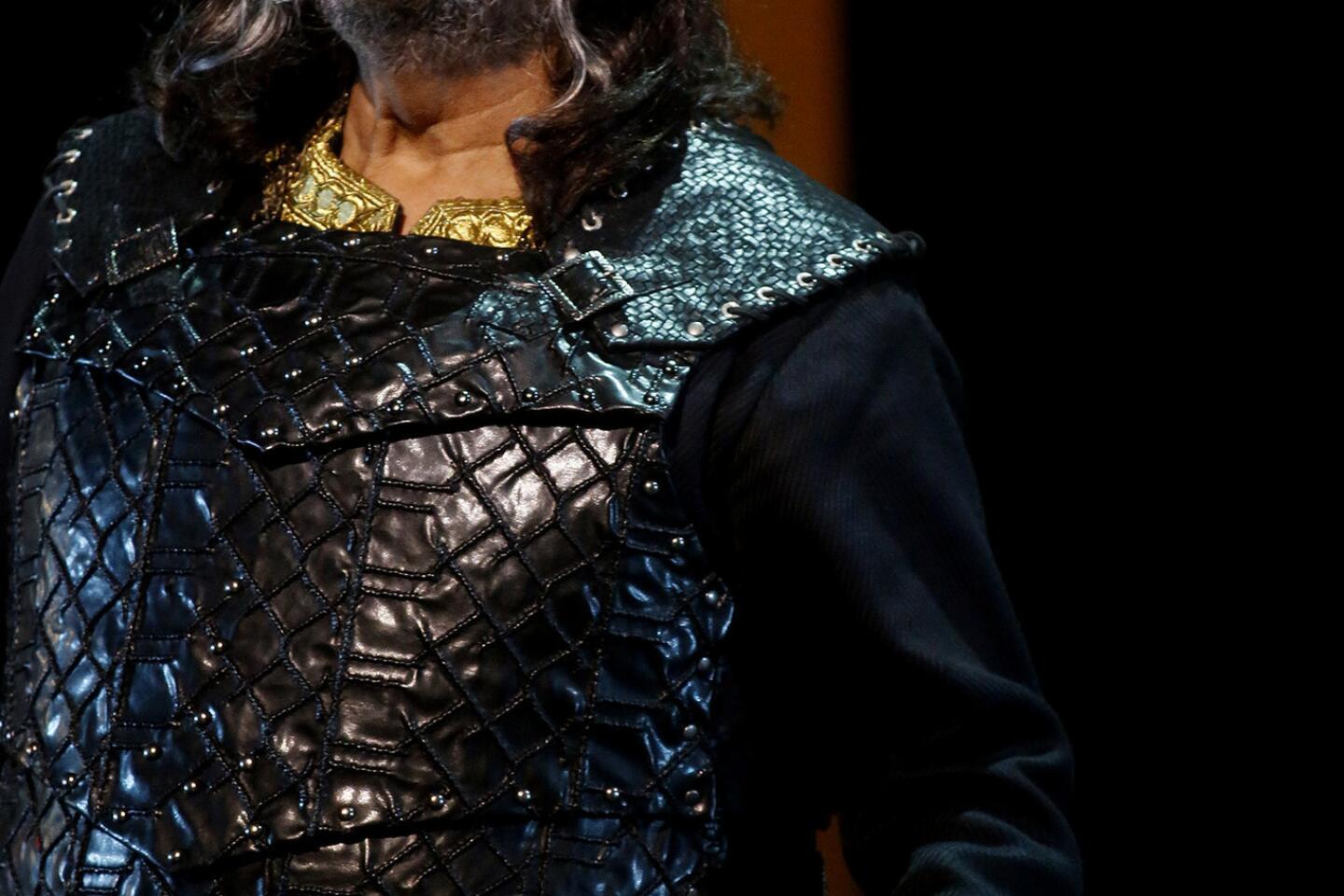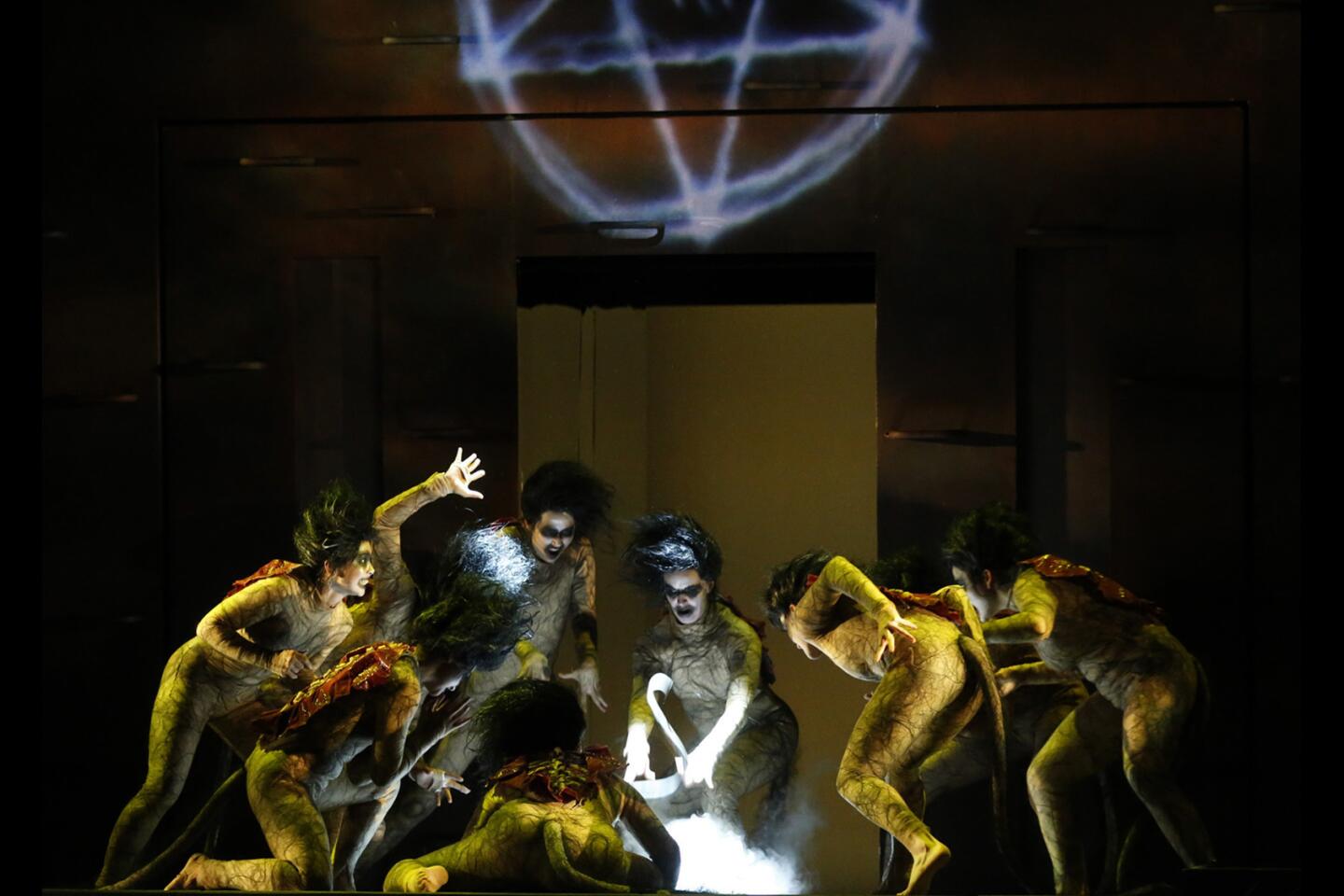Review: Plácido Domingo’s sound and fury in L.A. Opera’s ‘Macbeth’
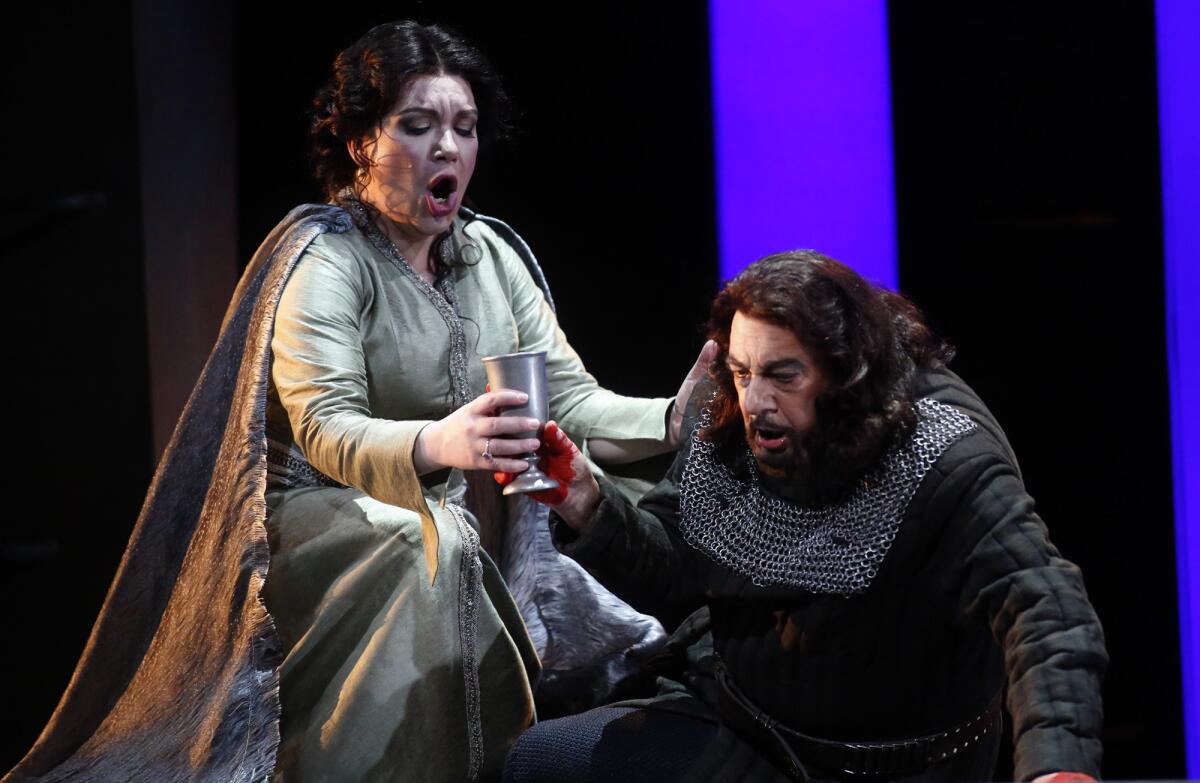
As Macbeth’s fate begins to catch up with him, the king in Los Angeles Opera’s 31st season opener cannot look forward to having earned honor, love or compassion. His voice rises into a stressed high range, and harmonies in the orchestra offer little comfort as he acknowledges that advancing age will not strew a single consoling flower.
Advancing age has done nothing but strew bouquets of honor, love and admiration on Plácido Domingo, L.A. Opera’s general director, and on this “Macbeth,” the company’s first production of Verdi’s first Shakespeare opera. No doubt an indefatigable 75-year-old Domingo required great will, upon learning of Lady Macbeth’s death, to summon up the sound and fury for Shakespeare’s famous line that life is a tale told by an idiot and signifying nothing.
Most baritones handle this as the decisive moment of profound resignation, the sealing of fate. Not Domingo, who is defying biological fate as no opera star before him. For him, the anguished utterance sounded an act of defiance signifying everything.
Six years ago he switched from tenor to baritone roles, and critics began complaining about his tenor ring, presumably providing less dramatic weight. Lately, in New York and London, there have been calls for him to finally retire from the stage after reportedly uncertain performances.
There was no uncertainty in Domingo’s singing Saturday night in the Dorothy Chandler Pavilion. Yes, there is a tenor quality to his voice, but all baritones shouldn’t and don’t sound alike, and Domingo’s vocal character is special. He commands the stage and the music he sings. His incomparable experience provides him with a quality on stage that younger singers cannot hope to match. He was genuinely impressive.
All baritones shouldn’t and don’t sound alike, and the Domingo’s vocal character is special. He commands the stage and the music he sings.
The problem was that Darko Tresnjak’s new production treats Verdi’s opera as a tale controlled by idiots, signifying nothing. The idiots are the witches, here nasty little devils with rats’ tails, heavily made-up eyes and mouths, and a kind of exoskeleton on their backs. They scurry around and up the walls of the set. They show the sassy attitude of cartoon rodents, wiggling their tailed bottoms. The audience seemed to find them cute and endearing, but their very cuteness sapped “Macbeth” of much meaning.
Verdi’s chorus of witches does, indeed, gaudily set the scene by opening the drama with cackling weirdness, forecasting the futures of Macbeth and his fellow general, Banquo. Those prophecies famously lead Macbeth, under the sway of his opportunistic wife, to kill the king and Banquo and assume rule. But this fate is a theatrical device to reveal the perverse inner working of ambition and the prospects of power.
In Tresnjak’s production, however, the witches are in complete control, pulling all the strings with malicious merriment. A bewitched Macbeth kills Duncan, the king, with the little devils underfoot. They’re there too bewitching a sleepwalking Lady Macbeth. Then there is the sheer silliness of the ballet with cradles and baby devilettes.
Had Tresnjak gone all the way and turned everyone into a sci-fi zombie, maybe that would have been momentarily interesting. But other than the devilish rats gnawing the woodwork, this is straightforward opera with period dress costumes by Suttirat Anne Larlarb. Yet, thanks to the witches and Tresnjak’s direction, which relies on conventional opera acting, there is little reason to find anything believable.
If Domingo is a tenor turned baritone, Ekaterina Semenchuk’s Lady Macbeth has the dusky sound of a ravishing mezzo-soprano taking on a major soprano role but with considerable caution, vocally and dramatically. Every phase sounded exquisitely calculated.
Roberto Tagliavini’s Banquo, Arturo Chacón-Cruz’s Macduff and Josh Wheeker’s Malcolm are strongly sung. The L.A. Opera chorus is terrific, and music director James Conlon brought out the best from the orchestra.
Yet Conlon also had an unenviable job of digging as deeply as he might into the richness of Verdi’s score while still supporting singers who seemed especially needy. Some of this may be a matter of perception caused by a production designed to make an audience mistrust character motivation.
But there were other worrisome signs of no there there. How much was Domingo merely going through the motions he is so expert in going through? A week earlier he was singing in a different new production of “Macbeth” in Beijing, which meant he was in L.A. for minimal rehearsal.
Although Domingo sings in all seven performances of the L.A. Opera “Macbeth,” which runs through Oct. 16 and includes Oct. 13 simulcasts at South Gate Park and the Santa Monica Pier, the baritone will nonetheless find time to skip out of town to sing in Seoul and Hermosillo, Mexico.
Thirty years ago, Domingo inaugurated the first season of L.A. Opera (then Music Center Opera) starring in the title role of another Verdi Shakespeare opera, “Otello.” He helped found the company and has now guided it for nearly half of its existence.
With time running out, Domingo can’t let his legacy be that he can get away with anything. He needs to make every performance not just impressive but, as this new “Macbeth” is not, special, all sound and all fury all the time.
------------
Los Angeles Opera ‘Macbeth’
Where: Dorothy Chandler Pavilion, 135 N. Grand Ave., Los Angeles
When: 7:30 p.m. Thursday, Oct. 5, 8 and 13; 2:30 p.m. Sunday and Oct. 16
Tickets: $24-$369
Information: (213) 972-8001, www.laopera.org
More to Read
The biggest entertainment stories
Get our big stories about Hollywood, film, television, music, arts, culture and more right in your inbox as soon as they publish.
You may occasionally receive promotional content from the Los Angeles Times.
